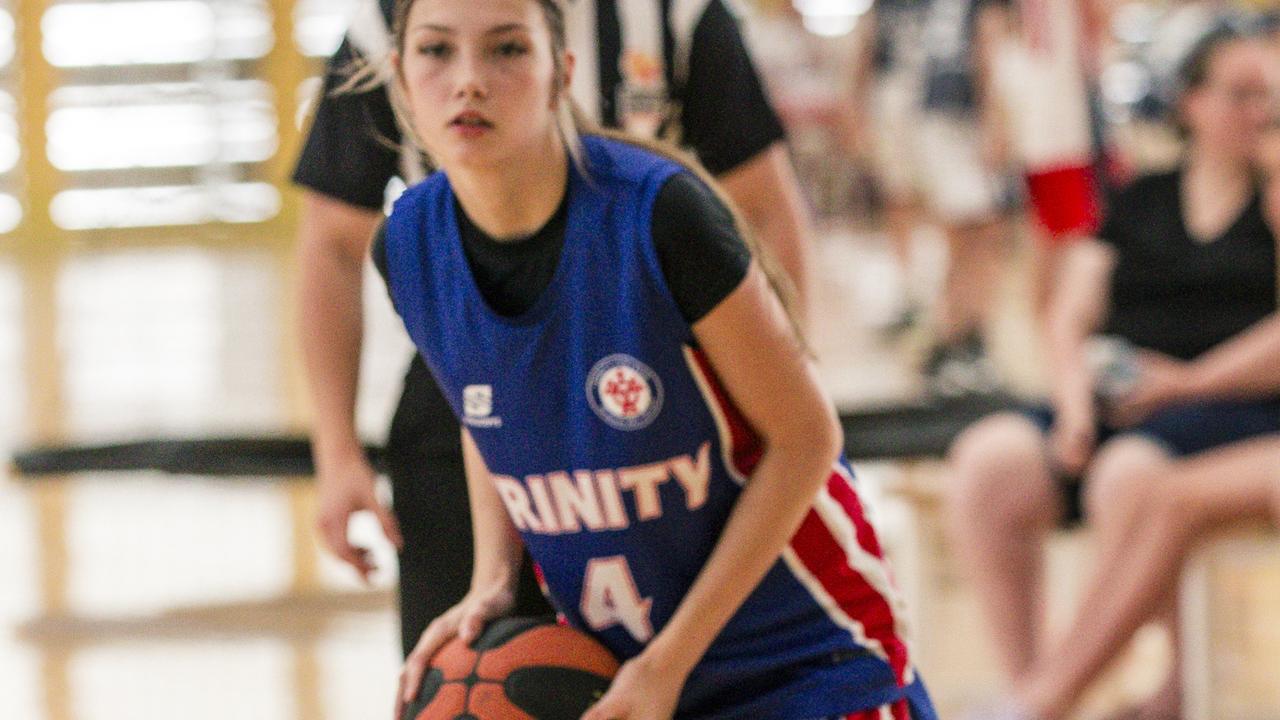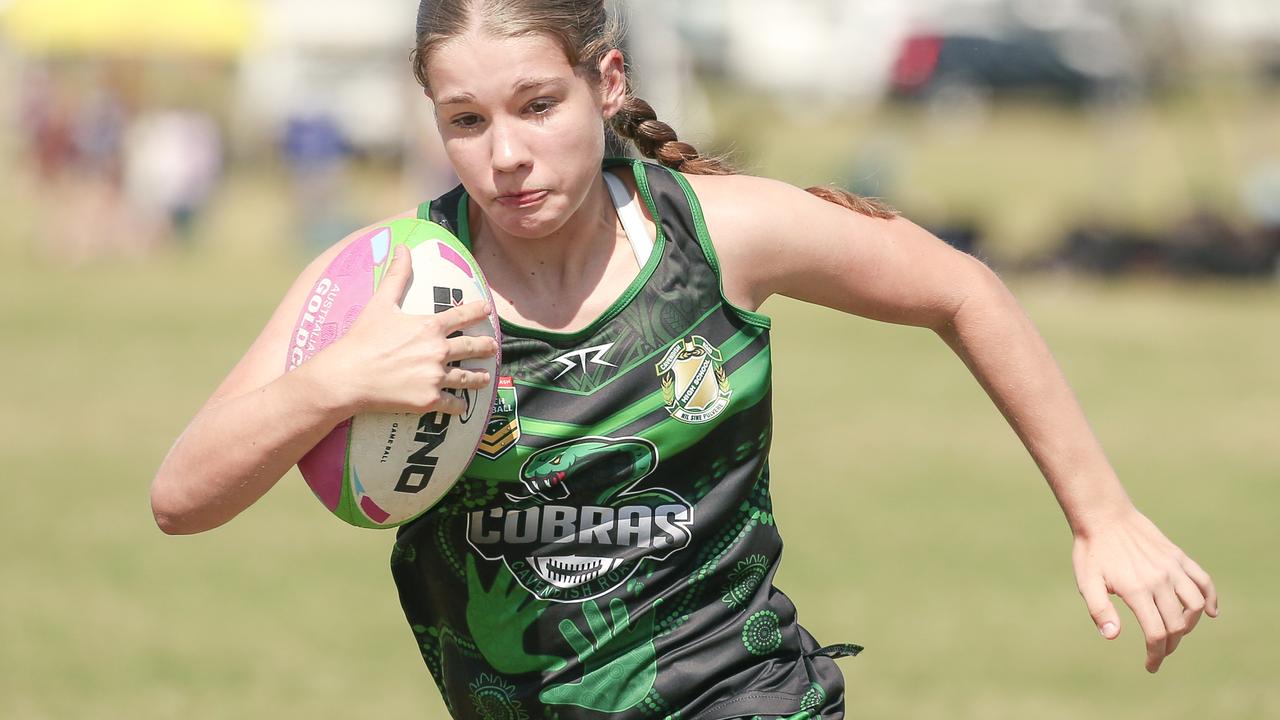‘Perfect football’: remembering Lismore Marist Brothers’ 1987 Clayton Cup victory
As Marist Brothers prepare to kick off their 2023 NRRRL campaign, we take a journey back in time to when the Rams were crowned kings of country footy.
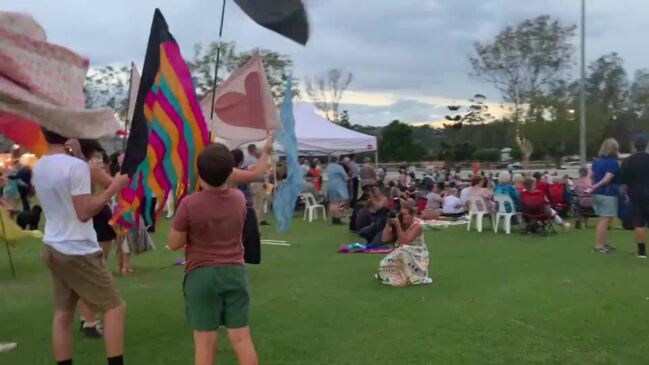
Sport
Don't miss out on the headlines from Sport. Followed categories will be added to My News.
Rolling up to pre-season training in 1987, Greg Jones had no idea that he was about to experience one of the most memorable years in his long and distinguished career.
The 36-year-old front rower had spent the previous couple of seasons predominantly in Marist Brothers’ reserve grade side and was preparing for a similar campaign in what was likely to be one of his final seasons playing rugby league.
That was until the Rams’ coach, the legendary Denis Meaney, approached him one night early in the pre-season.
“I’d played reserve grade the two years before and used to just come on as a reserve,” said Jones. “And at the start of the year Denis said, ‘I need you back in A-Grade all the time.’ I wasn’t expecting that, but he must have just had a role for me to play that he could see was needed.”
As a veteran bush footy player who had won premierships with Marist Brothers as a captain-coach in the early 1980s, Jones knew a good side when he saw one. And as far as bush footy teams go, the Marist Brothers outfit was as good as it got.
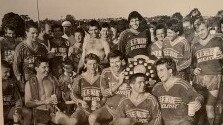
Captained by former Canterbury player Bernie MacDonald and featuring the likes of gun five-eighth Gary ‘Sam’ Sampson, the Rams had taken out the Group 1 minor and major premiership the season before.
However as the pre-season rolled on, Jones sensed that the group of 1987 was even a cut above what he’d seen before.
“This one was probably 10 per cent better,” he said. “I looked at the team names recently and there are just no weaknesses, anywhere. In country football you don’t often get a side where everybody was a rep-standard footballer.”
In fact, the team had what seemed to be the perfect mix of youth and experience, with a slew of local juniors – led by the ‘Three Dees’ of Steve Donnelly, Terry Dardengo and Tony Durheim – dominating first grade after first bursting onto the scene the year before.
“All of a sudden we had this injection of youth. They were fearless and very, very skilful – and that just took the side to a whole new level,” said Jones.
“Stevie Donnelly was experienced beyond his years, Terry Dardengo was an unbelievable fullback. Every time they’d kick the ball he’d take it on the full, at 100 mile an hour, and just made ground for you all the time. Tony Durheim, he went up and played with the Gold Coast, he was very, very strong and fearless for a young fella in the forwards.”
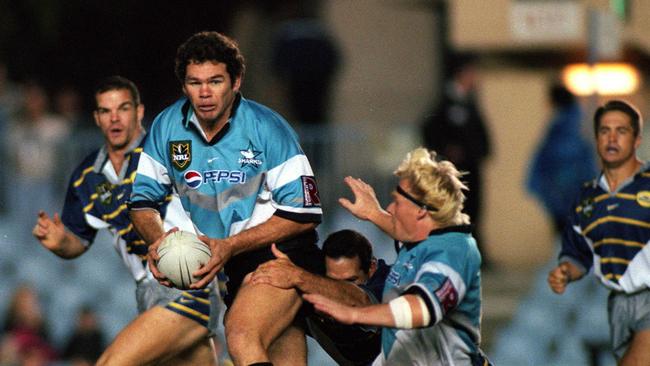
Another young star in the making was prop forward Danny Lee, who after partnering Jones in the front row in ‘87, would go on to enjoy a decorated decade-long career with the Cronulla Sharks.
“I played next to Danny in the front row. It was the young and the old together,” said Jones.
Just as Jones, the elder statesman of the team, was amazed at the talent on show, Dardengo – one of the young guns in the side – was equally in awe of some of the players he had around him.
“We had Gary Sampson at five-eighth, who’s probably the best five-eighth I ever played with. His body movement, his pass selection – he was just an absolute legend to play with,” he said.
“And then blokes like Tony Durheim and Steve Donnelly, who I played all my junior footy with, could turn the game on a dime if we needed it. It was a special time and a very unique team. We had Dave Macaffery on the wing. He was 5’5 and solid. He was a little bull – he’d run through a brick wall.”
‘A gentle giant’
Capping this off was the legendary coach Denis Meaney. A topline player with Manly and Wests in the NSWRL in the 1950s and 1960s, Meaney turned to coaching after his playing days and took the reins of Marist Brothers in 1985 after landing in the Northern Rivers, via Gunnedah.
He had an instant impact, leading the Rams to a grand final loss in his debut season, before taking out the minor-major premiership double in 1986.
“He brought a new sort of regime to coaching to the club,” said Jones.
“Everything was pretty simple. He used to have different patterns of play that we’d use at different stages of the game, depending on how things were going… It worked really well.”
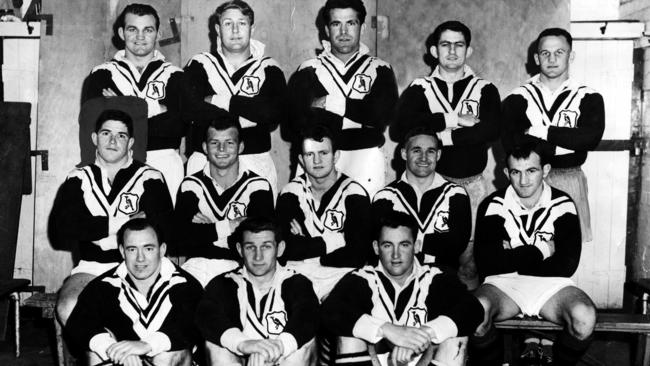
Indeed, aside from on-field tactics, Jones says Meaney’s approach to coaching was revolutionary for its time.
“Having Denis, who played a lot of years in Sydney, as a coach really taught those blokes a lot,” he said.
“He was great for just having a yarn with you, explaining what he wanted. He could bring blokes into the side and know that he just needed certain jobs to be done. I thought the way he coached was a bit like the way the NRL coaches are these days. I thought he was years in front of his time as a country coach.”
It’s a view Dardengo agrees with.
“Denis was a gentle giant. When he spoke, you listened. He definitely knew what he was talking about.
“He was probably a coach that was 10 years early for what was happening in the coaching world at that stage and how the game was played.
“He was brilliant: he demanded respect, but he’d also pull you aside to tell you what you did well and what you needed to work on at training on Tuesday night. He was very knowledgeable, a lovely, lovely man, and I don’t know of anyone who didn’t respect him as a person as well as a terrific coach.”
The road to glory
With a crack-shot side and expert mentor, the Rams went into the season confident of being able to defend their Group 1 title.
As the competition kicked off they took good care of the opposition, recording just one solitary draw – against Grafton in a wet night game at Oaks Oval – in an otherwise perfect season that saw the Lismore side once again claim the minor premiership.
Despite their excellent performances, any talk of claiming the Clayton Cup – awarded to the NSW country rugby league side with the best overall record – was kept well under wraps. Over in the Hunter Valley Group 21 competition, the Muswellbrook Rams had managed to win every game they played in the regular season.
“Once we had that draw we weren’t discussing it much because we weren’t the ones leading the line for it, Muswellbrook were, so we never really held it up as a great thing that we could win,” said Jones.
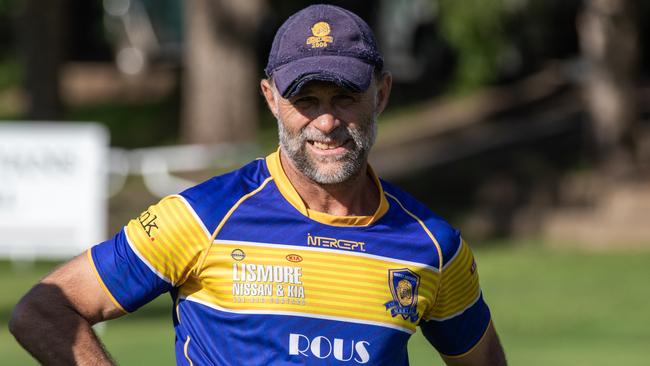
So with the focus well and truly on the local Group 1 competition, Marist Brothers rolled through the semi-finals and qualified for their third-straight grand final.
Having secured their spot in the big dance a week early, the team was put through a gruelling weekend training session to maintain their fitness.
Later that afternoon, with the players still recovering after being flogged by Meaney and the coaching staff, they received news from 580 km to the south-west that brought a smile to their faces: Muswellbrook had just been knocked off by local rivals the Aberdeen Tigers 24-12 in the Group 21 grand final.
The upset result ruined the Rams’ perfect season and opened the door for another set of Rams – those of the Marist Brothers of Lismore – to potentially claim country rugby league’s greatest crown.
“Muswellbrook went all the way through to the grand final and got beat – that was their only loss of the year,” said Jones. “We had our grand final the next weekend, so as soon as they got beat we realised that if we won the grand final, we were probably going to receive the Clayton Cup.”
If the extra incentive put any additional pressure on Marist Brothers or altered their focus, it certainly didn’t show as the team hosted Kyogle in the grand final at Oaks Oval.
“It was a big crowd, because no Group 1 side had won the Clayton Cup for many years,” said Jones. “We had the reserve grade in as well. I think it was the last year that the old grandstand was able to be used at Oaks Oval before they pulled it down.”
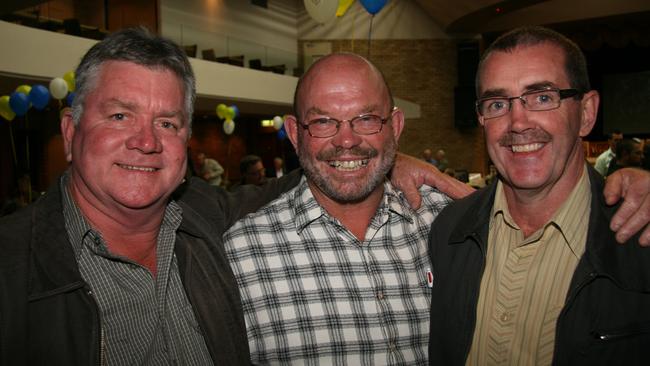
Spurred on by the home crowd, the Rams burst out of the blocks and completely dominated the Turkeys to take a 22-0 lead into half-time.
“It was a pretty enthusiastic start from us,” says Dardengo. “We just came out with Danny Lee up front, Tony Durheim – they drove into that defensive line pretty hard. That was the catalyst for a couple of the early tries.”
Jones agreed: “The first half was perfect football, absolute perfect football. A bit like Penrith in their first half in the grand final last year. Everything we did worked, and they didn’t really look like scoring at any stage in the first half,” he said.
“I remember going off at half-time and Denis looked at me as if to say, ‘Crickey, we can’t go any better than this!’”
With the beer and champagne already on ice, Marist Brothers saw out a steady second half to win the game 22-6.
“It was excellent,” said Jones. “A lot of Denis’ mates who he’d known from his playing career in Sydney were around too. It was really good. The fact that we had other grades in the grand final on the day made it a great club occasion.”
In doing so, the club not only won the Group 1 minor and major premiership for the second year running, but also claimed the holy grail of country football – the Clayton Cup – for the first and only time in Marist Brothers’ history.
“The Clayton Cup is the pinnacle of country rugby league and we were lucky enough to come up with a half-decent team and went through undefeated,” says Dardengo.
The Clayton Cup legacy
While the celebrations kicked on in Lismore, the victory left an indelible mark not only on the club but also a number of young players in the squad.
The win and the attention it attracted acted as a springboard for the careers of Terry Dardengo, Danny Lee and Tony Durheim, who all went on to play professionally in the ARL.
“It definitely kick-started my career – even though it was short – in the ARL. And I’ve got blokes like Denis, Greg Jones, Danny Lee to thank for helping me get there,” said Dardengo, who spent two seasons with the Gold Coast Giants in 1989 and 1990.
“We’re playing a team sport, so you’ve got to rely on your teammates. And to reach the top of the mountain you need a whole team effort. If any of us had have been in a team that finished sixth or seventh, who knows if we would have been picked up.”
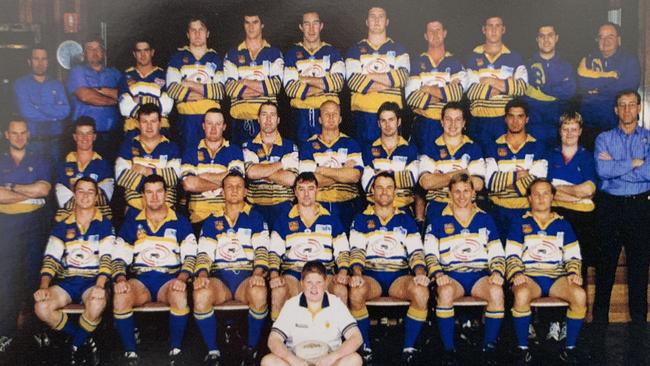
By claiming the Clayton Cup, the team of 1987 wrote themselves into Marist Brothers history. And while they were a special team, they were one of many special Rams sides throughout a golden era for the club.
“That was just such a special era at Marist Brothers, in the late 80s, into the 90s and the early 2000s,” said Dardengo.
“We had a team in just about every grand final in either firsts, reserves and under 18s. And if you go back and look at the amount of players who went on to play ARL/NRL or even rep footy, it is amazing.
“I think it really comes down to the club culture and the family-based atmosphere that the club provided, which brought players to the club and to the town. We bonded as a team, and success breeds more success. It was a very special time and I’m really glad that I was part of that era.”
Now, some 36 years later, the current crop of Marist Brothers’ players are preparing to kick off their NRRRL season against Kyogle this weekend. And as they run out onto Oaks Oval on Sunday afternoon, they’ll no doubt be looking to honour the legends of ‘87 by creating their own little slice of history.
Marist Brothers play the Kyogle Turkeys at 2:45pm on Sunday afternoon at Oaks Oval, Lismore, in round one of the 2023 NRRRL season.



